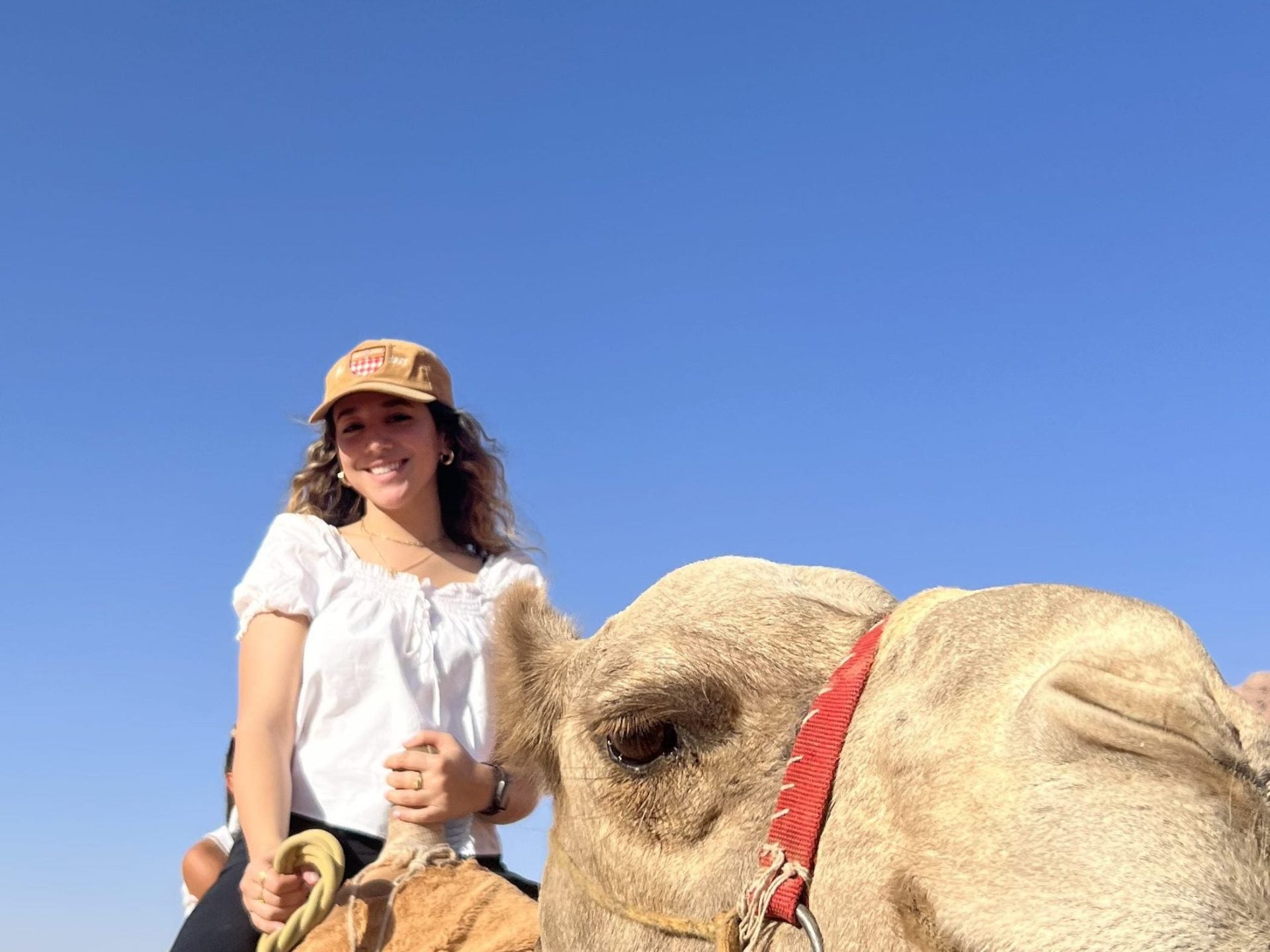Language Studies Connects SPSIA Student to Roots

For student Daniah Jarrah, studying Arabic holds much more power than bilingualism.
Jarrah is studying Arabic in Amman, Jordan, with the Qasid Institute, which teaches both modern standard Arabic and classical Arabic. Jarrah notes that modern standard Arabic is the dialect that is used in the political and academic realm of the Middle East.
With family origins in Lebanon, Jarrah is a heritage speaker.
“There was a lot of English growing up and still my Arabic, my dialect, on its own was never the best. Let alone my formal Arabic, which was not developed at all,” Jarrah said.
Alongside her Arabic roots, her longtime interest in working with the Middle East in terms of foreign service led Jarrah to study Arabic for her undergraduate degree. She was introduced to the Qasid Institute, where she will spend her 2022-2023 year. Her studies are made possible through a Boren Scholarship.
Jarrah has always been interested in working with the Middle East in some capacity. She especially is invested in reading about orientalism and how the west perceives the Middle East.
Even though Jarrah has only been in Jordan for three months , she notes the overwhelming amazement she feels toward the institute which has “exceeded all expectations.”
With students from all over the world, it offers a wide range of class levels, accommodating a wide number of students from undergrad to doctorate.
Jarrah finds joy in spending time in an Arabic country, saying that it allows her to connect on a deeper level with that part of herself. Even in simple things, such as the shifted week schedule which, she explains, is from Sunday to Thursday. Since Friday is the holy day of the week, Friday and Saturday are considered the weekend.
Likewise, the cultural differences between the U.S. and Jordan provide Jarrah with an immersive experience during her studies, “even something as simple as the way you greet people here, you’re constantly saying ‘As-salaam ‘alykum’ which is a very Islamic way of saying hello– It’s something I love because I’m not used to it. In Jordan, there is this cultural and religious tie that you don’t really experience in America.”
This immersion-factor of the institute is a primary reason Jarrah believes in the value of studying abroad. Jarrah has observed a stark difference in the language abilities of those who have and those who have not studied abroad. She explains that while those who have not may be able to construct grammatically complex sentences, their ability to communicate in an everyday scenario is limited.
Jarrah’s ultimate goal in studying Arabic is to enrich the United States government with representatives that have a full understanding of cultural and linguistic nuances, allowing them to approach foreign service in a more ethical, productive, and compassionate manner.
“It changes the way that you understand the Middle East, the way that you perceive the people, and the way that you interact with them; it helps make interactions more positive,” Jarrah said.
